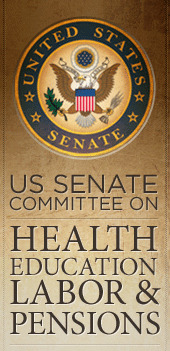by
Astrid Fiano, DOTmed News Writer | August 03, 2010
Senator Al Franken (D-MN) questioned a panel during a Senate Health, Education, Labor and Pensions Committee Hearing on why medical device manufacturers do not have as many incentives to create treatments for rare diseases as do drug manufacturers. Franken said he would be specifically requesting the General Accountability Office (GAO) to investigate and analyze how the incentives for the drug industry compare to those in the device industry.
The hearing was billed "Treating Rare and Neglected Pediatric Diseases: Promoting the Development of New Treatments and Cures."
Franken stated that he wanted to find how treatments could be developed more quickly, and that he was concerned that "...we still don't have the equivalent incentives for devices as we do for drugs...there has to be a better way to make sure our scientific infrastructure and financial incentives produce treatments for both prevalent and rare diseases."
He asked the panelists to comment on the differences between the incentives for development of orphan drugs and the humanitarian use of medical devices.
Dr. Jesse Goodman, FDA chief scientist responded that he felt that it was good to recognize that "...devices intended for small populations and rare diseases face some of the same economic and development challenges that drugs do....Drugs and devices are different, so it's understandable you have some differences...but I would say many of the challenges are the same."
Franken then pointed out a significant difference between drugs and devices--that a drug patent has a longer life and is more valuable. Device manufacturers do not have the same incentives, he said.
Goodman agreed that the original approval paradigms are different. "For example, the major incentive in the orphan program of additional exclusivity is not applied to devices. So I think that is definitely one difference."
Franken then said he felt that companies such as those in Minnesota who had generated humanitarian use devices could do more under the right conditions. He said he would request that the GAO investigate the issue. "We need to make sure we are doing all we can to get devices to the kids who need them, and I'll be following up with the GAO shortly to pursue this question."
Senator Franken's remarks may be accessed
here.
